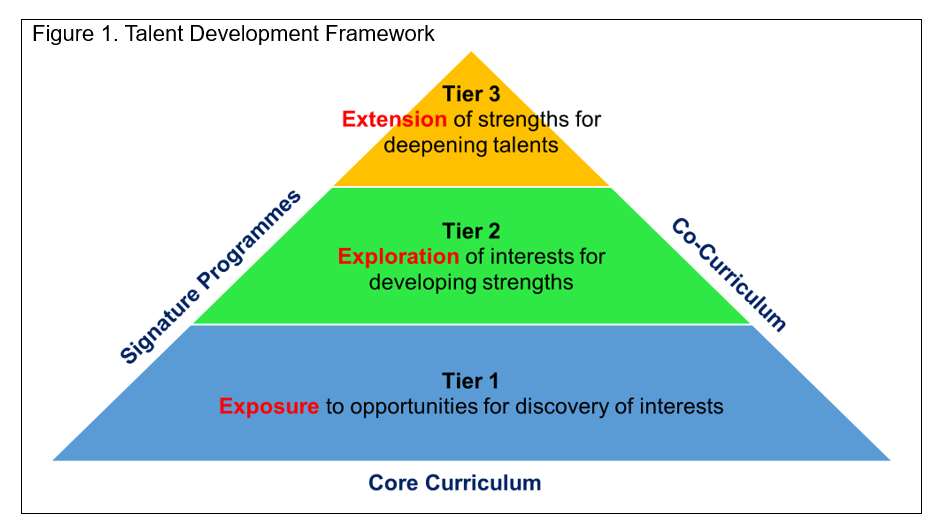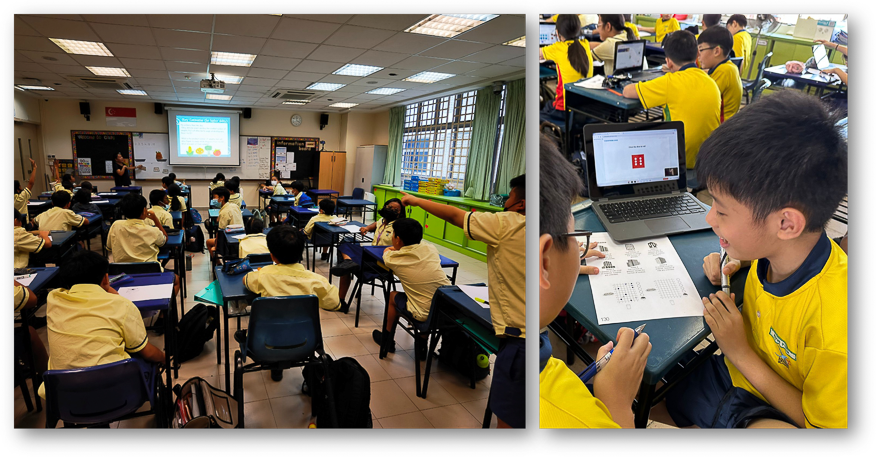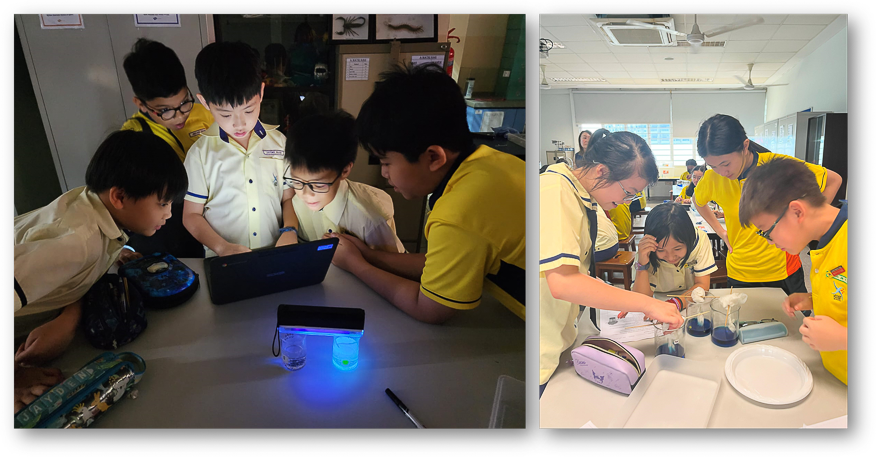Talent Development
Talent Development @ Lakeside Primary School
Be A Star, Make A Constellation
At Lakeside Primary School, we believe every student has the potential to shine. Our tiered talent development approach provides a nurturing, yet, sufficiently challenging environment for our High Ability Learners (HALs) to stretch their thinking, fuel their passion for learning, and grow into Creative Thinkers, Empathetic Leaders, and Lifelong Learners.
WHY?
Through the differentiated talent development engagements, our HALs will:
- Learn how to think deeply and independently
- Build confidence to communicate ideas and solutions
- Take initiative in leading and contributing to school and community causes
WHAT and HOW?
We recognise that talents manifest in different forms, so we aim to provide various platforms for every student to grow. Therefore, we seek to identify, and nurture selected students with high potential in these domains — cognitive, aesthetic, physical, and social, while demonstrating exemplary character and outstanding potential or performance in:
- Subject disciplinarity (e.g., Mathematics, and Science)
- Creative expression (e.g., Visual & Performing Arts)
- Leadership and social responsibility (e.g., CCA Community Leadership Club)
Our talent development framework (see Figure 1 below) is guided by:
- Neihart & Betts’ profiles of gifted learners (2010)
- Treffinger’s Levels of Service model (2004)
- Gagné’s Differentiated Model of Giftedness and Talent (2010)

Tier 1: Exposure
All students experience rich, stimulating learning through classroom strategies that promote higher-order thinking, inquiry, and creativity.
Tier 2: Exploration
Students identified with advanced abilities undergo enrichment through our customised school-based programmes, such as:
- E2K Mathematics: Conducted in class to cultivate our students’ abilities in independent learning, higher-order thinking, and creative problem-solving. Deploying a diverse array of instructional strategies, including the use of background narratives, and educational games, students develop mathematical reasoning and deepen their conceptual understanding.
 • Figure 2. Students interact in lively class discussions on mathematical problem-solving. (left)
• Figure 2. Students interact in lively class discussions on mathematical problem-solving. (left)
• Figure 3. Students work collaboratively to develop adaptive thinking skills. (right) - E2K Science: Conducted after school by trained teachers. To nurture students as inquirers by providing opportunities for them to explore and to appreciate the role of Science for Life and Society, students engage in scientific investigations to discover and deepen their understanding of advanced science concepts through an inquiry approach.
 • Figure 4. Students engage in inquiry-based learning, by sharing ideas and recording their observations digitally. (left)
• Figure 4. Students engage in inquiry-based learning, by sharing ideas and recording their observations digitally. (left)
• Figure 5. Students actively collaborate and investigate during hands-on activities. (right)
Tier 3: Extension
Selected students pursue passion-driven projects or represent the school in learning showcases (including public performances and exhibitions) and/or national/international competitions, often through the following platforms:
- Student Leadership Development
- Applied Learning Programme, Thinkers with Heart.
- Learning for Life Programme, Stars witHeARTS.

